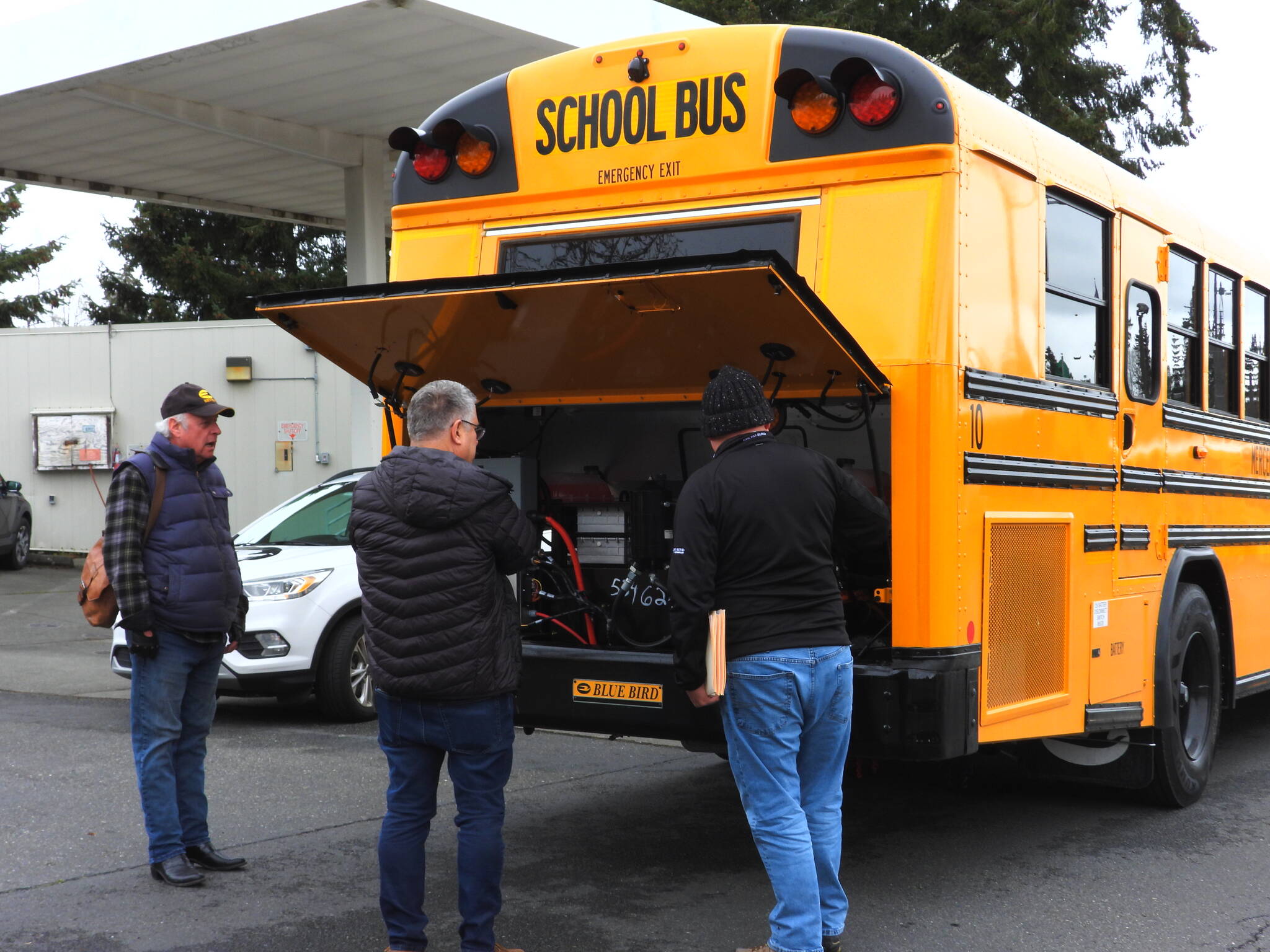Patrick Rock is passionate about helping protect the planet.
The Mercer Island School District (MISD) director of transportation drives a Tesla electric vehicle and utilizes solar power on the roof of his Island home.
In his work realm, Rock played an integral role in bringing the first electric school bus to the Island on April 21. It was a timely arrival since the presence of the large bus on the Island leaned into Earth Day on April 22.
Rock is in the midst of his third year with the district and intends to have an entire electric bus fleet in place over the next 13-15 years.
MISD ordered a pair of big yellow Bluebird model E buses from the Bryson sales and service company last April, but supply chain issues for parts caused a delay in deliveries. The district’s second big bus is anticipated to arrive sometime this summer and will initially provide shuttle services to Summer Celebration events.
The buses carry a price tag of about $380,000 each and are funded from a 2017 levy, said Rock, adding: “They’re very quiet. There’s no diesel fumes. We definitely feel like this is the way to go. What we’re excited about more than anything else is the zero emissions and having less of a footprint.”
Starting last year, Rock said the district rolled out a GPS bus-tracking program for parents who are conditioned to hear the buses coming and then send their children outside to catch them. Receiving those pop-up notifications regarding buses’ arrivals will be beneficial with the quiet E buses in operation.
Mercer Island Mayor Salim Nice noted about E buses coming to the Island and the city’s involvement in helping save the environment: “I think it’s great to see that the school district is looking to electrification of their fleet, particularly with the heavy diesel factors. The city has been doing electrification of the light vehicles and we’re looking at the mid-size vehicles, so we see that as a huge complement to what we’re doing and we’re both kind of marching in the same direction.”
From now until the end of the school year, some district drivers will begin training and testing the bus on different routes in preparation to utilize it full time starting in the fall.
MISD planned to introduce the bus to the community by bringing it to the Circus event on April 29 so that parents and kids could jump on board for a ride. At the April 25 Mercer Island Schools Foundation Breakfast of Champions, an attendee won a raffle and will be able to invite friends to cruise on the E bus. Rock added that the district and Chamber of Commerce may partner to arrange rides to a restaurant and ask the eatery to give a percentage of the bill to the schools foundation.
E buses drive differently than the diesel sort, said Rock, who explained a portion of the process: “The braking and acceleration is a different feel. You have to get used to that because when you take the foot off the gas, it becomes a regenerative thing, and so it slows down a little faster than if you just let it coast on a diesel bus.”
A full charge of the 600-volt battery — which is situated in the back along with computer modules and a host of other parts — will send the bus off on its routes for about 102 miles (a full tank in the diesel buses lasts about 250-300 miles). A pair of level-two chargers are set up at the district building and they can knock out a full charge from empty in about six to eight hours. That overnight charge should last for a full day of routes, Rock said.
By the numbers, E buses possess about 200 moving parts compared to about 2,200 on diesel buses; there’s an eight- to 12-year warranty on each battery; and the lifespans of the big and small buses are 13 and nine years, respectively.
“Our next five bus purchases after this would all be big buses, and then we’d start purchasing some smaller buses along with that,” said Rock, noting that the district runs 16 big buses and five small buses — which transport special education students — each day.
On average, about 2,678 students ride the buses at least one way each day and there are 38 drivers — including full timers and substitutes — on board for regular routes, field trips and other excursions.
“It’s exciting to see MISD achieve this milestone and set a good example for other agencies in the region. This is just the kind of clean transportation action that is identified in the city’s new Climate Action Plan and the city itself is working on adding more EVs to the fleet,” said Ross Freeman, the city’s sustainability program analyst.


